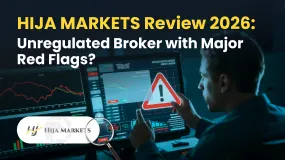Abstract:Nigerian fintech startups are at the forefront of a transformative movement, merging the established world of traditional finance with the exciting potential of cryptocurrencies

By: Damian Okonkwo

Introduction
In recent years, Nigeria has emerged as a hotbed for fintech innovation, with a particular focus on bridging the gap between traditional finance and the burgeoning world of cryptocurrencies. Fintech startups in the country are playing a pivotal role in reshaping the financial landscape, aiming to bring the benefits of blockchain technology and cryptocurrencies to the masses.
The Current Landscape
Nigeria, like many other nations, has a predominantly traditional financial system that coexists with a rapidly growing interest in cryptocurrencies. While traditional banking systems offer stability and trust, the crypto space brings decentralization, borderless transactions, and financial inclusion. Fintech startups are recognizing the need to harmonize these seemingly disparate worlds to create a more inclusive and versatile financial ecosystem.
The Need for Innovation
Despite boasting Africa's largest economy, Nigeria contends with limitations in its traditional financial system. Limited access to bank branches, cumbersome bureaucratic processes, and a high percentage of unbanked citizens restrict financial inclusion for a significant portion of the population. Cryptocurrencies, with their decentralized nature and potential for faster, cheaper transactions, offer an intriguing alternative.
Fintech Startups: Building Bridges
Recognizing this potential, Nigerian fintech startups are developing solutions that integrate crypto into the traditional financial landscape. Here's a glimpse into some key areas of focus:
● Crypto-to-Fiat Gateways: These platforms allow users to seamlessly convert between cryptocurrencies and traditional fiat currencies (like the Nigerian Naira) – a crucial step for mainstream adoption.
● Cross-Border Transactions: Cryptocurrencies, with their borderless nature, offer a solution to the challenges associated with cross-border transactions. Fintech startups are developing platforms that facilitate seamless and cost-effective international money transfers, reducing the reliance on traditional remittance channels that often involve high fees and delays.
● Micropayments: Crypto's potential for micropayments is being explored, enabling users to make smaller, more frequent transactions, potentially revolutionizing sectors like mobile payments and transportation.
● Lending and Borrowing: Decentralized finance (DeFi) protocols are being explored to create permissionless lending and borrowing platforms, bypassing traditional financial institutions and potentially increasing access to credit.
● Financial Inclusion: One of the primary goals of fintech startups in Nigeria is to address the issue of financial exclusion. A significant portion of the population remains unbanked or underbanked, facing challenges in accessing traditional banking services. Fintech solutions leverage blockchain technology to create decentralized financial platforms, enabling users to participate in the financial system without relying on traditional banking infrastructure.
Challenges and Opportunities:
Despite the promising developments, challenges persist. Issues such as regulatory uncertainties, security concerns, and the need for technological infrastructure upgrades pose hurdles for fintech startups. However, these challenges also present opportunities for collaboration, innovation, and the establishment of a robust ecosystem that can withstand and adapt to evolving circumstances.
The Road Ahead
The future of Nigerian fintech hinges on collaboration between traditional financial institutions, regulators, and innovative startups. By establishing clear regulations, fostering innovation, and prioritizing financial literacy, Nigeria can position itself as a leader in bridging the gap between traditional finance and crypto. This collaborative effort has the potential to unlock a new era of financial inclusion, efficiency, and empowerment for all Nigerians.
Conclusion
Nigerian fintech startups are at the forefront of a transformative movement, merging the established world of traditional finance with the exciting potential of cryptocurrencies. By addressing the challenges and fostering collaboration, Nigeria can pave the way for a more inclusive and robust financial future for its citizens.











